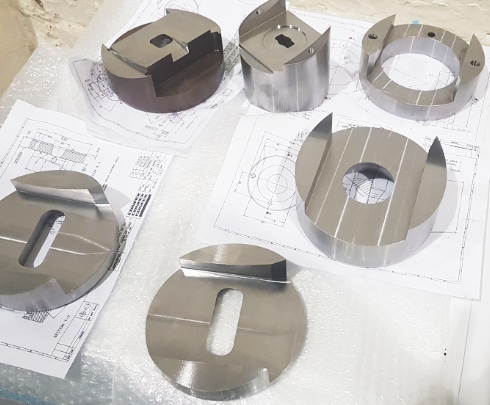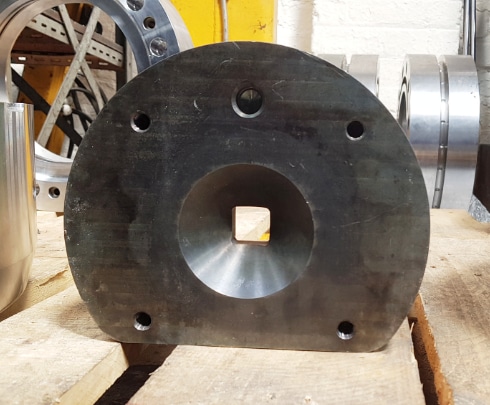
An extrusion die is typically formed as a metal disk, with custom openings within it, from which shape the metal being extruded will take on. For this reason, extrusion dies can produce an almost infinite number of profiles.
An extrusion die is located towards the end of the extrusion line; the metal must be redirected into the die and pushed with great force so it can squeeze through the holes cut out of the die. It is paramount, therefore, that your die is trusty and durable, in order to minimise the downtime of your extrusion machine.
Bellcliffe Engineering are able to both design and manufacture a range of components for your aluminium and copper continuous rotary extrusion processes, using state-of-the-art software and machinery.
Capabilities & Technical Specifications
Bellcliffe Engineering provides free site surveys in order to determine how we can best assist you, and resolve the manufacturing problems you face. We continue to work closely with our customers to ensure your products are made to measure for your operations; this means using CMMs, CAD, and CAM software for designing and manufacturing measures. The material and heat treatment of your extrusion components will be carefully selected with your business in mind.
Bellcliffe Engineering meets Industry Standards when manufacturing extrusion tooling. We have 100 combined years of experience, delivering global services, behind us - allowing us to create components you can trust.
All components are made to your specifications and requirements; for further discussion regarding technical specifications, talk to a member of our team.

Applications
Bellcliffe Engineering can provide extrusion components for a multitude of sectors whom benefit from the extrusion process, including the following -
Got A Question? Get In Touch
FAQs
There are two common types of extrusion dies - solid and hollow, with a third style also used - semi-hollow dies.
Solid dies: these dies are arguably the most simple in design, and are used to extrude solid shapes, such as solid bars or rods
Hollow dies: hollow dies produce profiles with at least one perforation in it; the main hole within the die will have internal features within it in order to create the external and internal shape of the extruded product. A mandrel is used to create the internal perforation of the die.
Semi-hollow dies: this is where a product still has perforations, like a hollow die, but the openings are not fully enclosed. The perforations themselves have an opening which associates them with solid dies